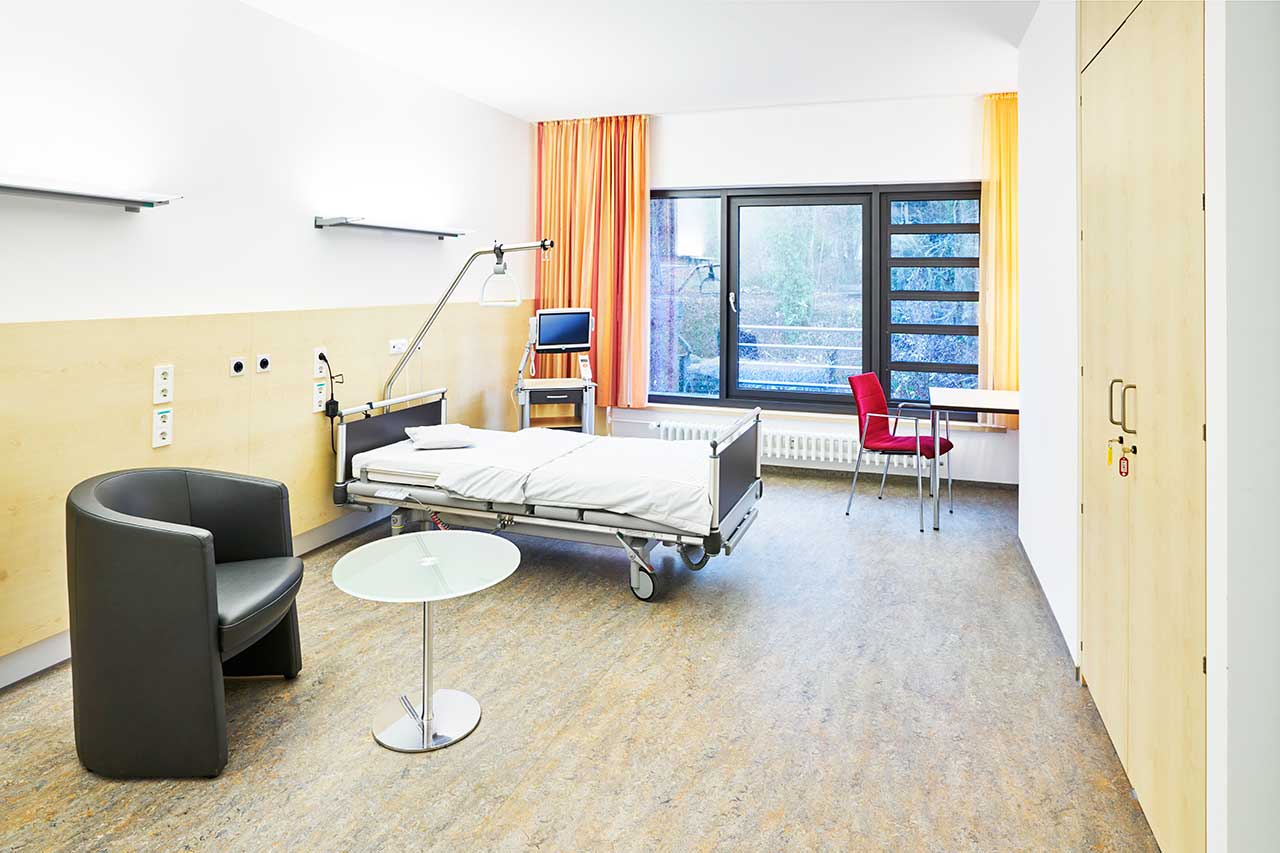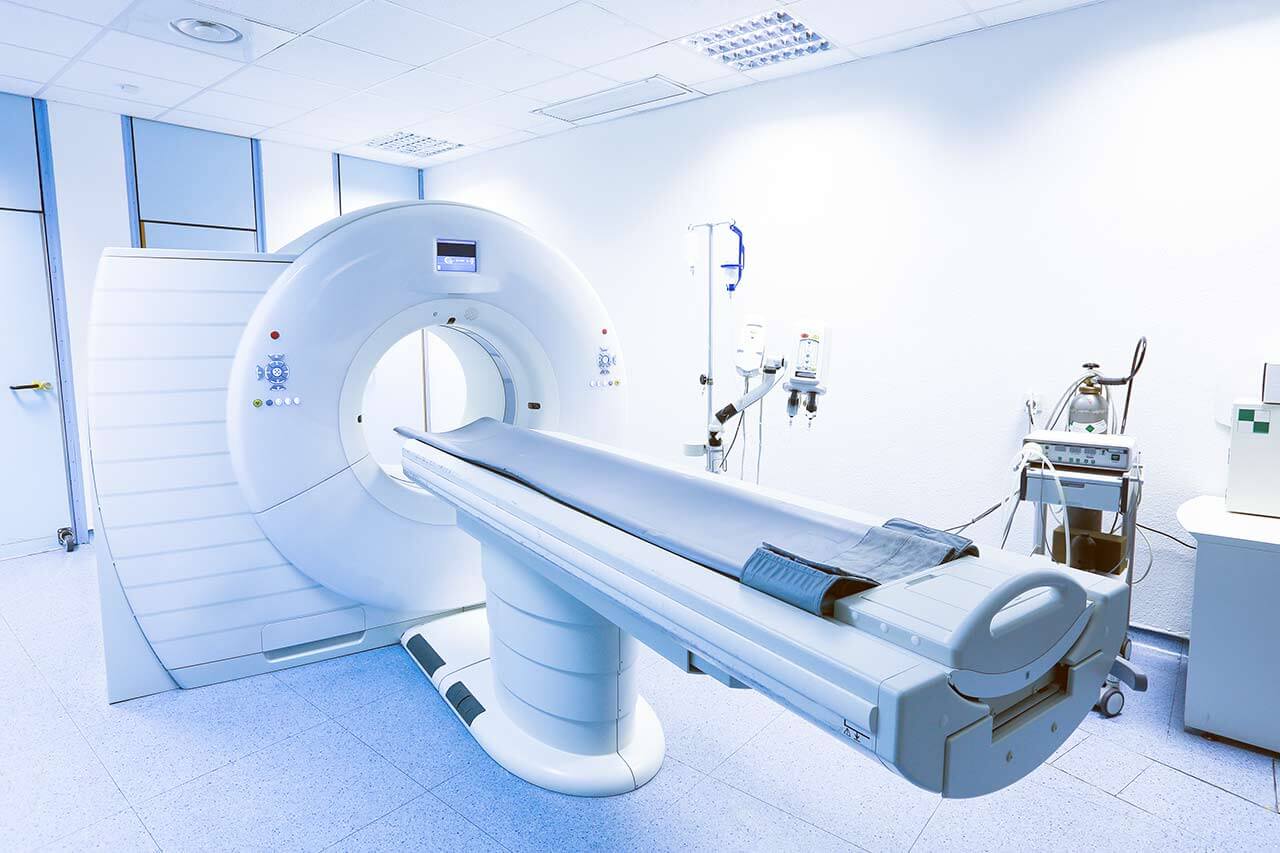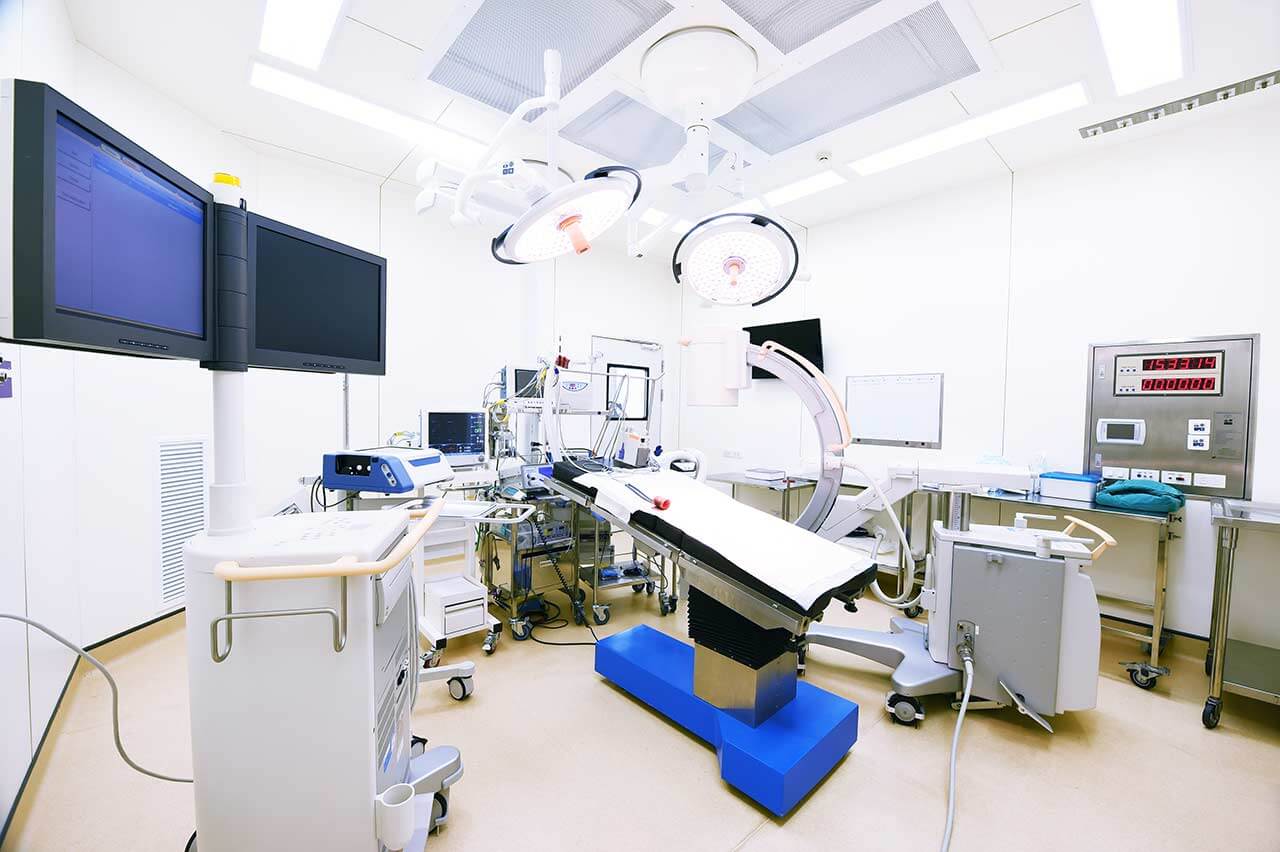
The program includes:
- Initial presentation in the clinic
- clinical history taking
- review of medical records
- physical examination
- laboratory tests:
- complete blood count
- general urine analysis
- biochemical analysis of blood
- inflammation indicators (CRP, ESR)
- indicators blood coagulation
- neurological examination
- functionality x-ray
- CT/MRI scan
- neuropsychological tests (on indications):
- ENMG (electroneuromyography)
- EEG (electroencephalography)
- SEPs (somatosensory evoked potentials)
- VEPs (visually evoked potentials)
- BAEP tests (brainstem auditory evoked potential)
- preoperative care
- treatment of hemangioma with coiling
- 1-day intensive care unit stay
- postoperative MRI control
- symptomatic treatment
- control examinations
- the cost of essential medicines and materials
- nursing services
- full hospital accommodation
- developing of further guidance
Required documents
- Medical records
- MRI/CT scan (if available)
- MR/CT-angiography (if available)
Service
You may also book:
 BookingHealth Price from:
BookingHealth Price from:
About the department
The Department of Neuroradiology at the University Hospital Erlangen carries out high-precision imaging diagnostics and effective image-guided interventional treatment. The department's doctors specialize in the diagnostics and treatment of pathologies of the central and peripheral nervous system – brain and spinal cord, peripheral nerve endings. Many diagnostic and therapeutic procedures are performed on an outpatient basis. It is worth noting the high professionalism of the team of doctors of the department and their extensive clinical experience, which, in combination with the latest technologies, make it possible to diagnose and treat even particularly complex neurological disorders. The department is headed by Prof. Dr. med. Arnd Dörfler.
To provide top-class medical care, the department has state-of-the-art equipment, including progressive systems for classical computed tomography (CT) and magnetic resonance imaging (MRI), functional MRI, MR spectroscopy, MR angiography, diffusion tensor MRI, digital subtraction angiography, DYNA CT scans. Imaging equipment allows making an accurate diagnosis in case of suspected stroke, brain or spinal cord tumors, inflammatory and degenerative diseases of the nervous system, headaches and dizziness of unknown origin, herniated discs, cerebral aneurysm, arteriovenous malformation, peripheral nerve compression syndromes, as well as timely detection of such severe diseases as Parkinson's disease, Alzheimer's disease and amyotrophic lateral sclerosis.
In the field of interventional therapy, key attention is paid to interventional procedures for the elimination of vascular obstruction and stenosis in the neck and brain, as well as to mechanical thrombectomy for the treatment of acute stroke, interventional procedures for the treatment of cerebral aneurysms and arteriovenous vascular malformations, interventional pain therapy for chronic back pain. The interventional procedures with the use of catheters, stents and other endovascular devices are an excellent alternative to classical open surgery that can lead to irreversible damage to the nervous system. In addition, minimally invasive procedures greatly facilitate the patient's recovery after the intervention. As a rule, after performing such a therapeutic procedure, the patient can leave the department after a few days. With all the above mentioned advantages, neuroradiological treatment methods are not inferior to classical surgery in terms of their efficiency.
The department's range of medical services includes:
- Diagnostic options
- Conventional CT scans and MRI
- Functional MRI
- DYNA CT scans
- Diffusion tensor MRI
- MR spectroscopy
- Myelography
- CT scans and MRI angiography for cerebrovascular imaging (also with contrast enhancement)
- Digital subtraction angiography
- Classical radiography
- Ultrasound examinations
- Therapeutic options
- Mechanical thrombectomy in stroke
- Interventional treatment of cerebral aneurysms with coiling
- Interventional treatment of vascular stenoses and obstructions in the brain and neck using minimally invasive catheter interventions (percutaneous transluminal angioplasty)
- Interventional treatment of vascular malformations (arteriovenous malformations and arteriovenous fistulas)
- Embolization for the treatment of chronic subdural hematomas
- CT or X-ray-guided pain management for spinal pain (for example, infiltration, facet block, periradicular therapy, vertebroplasty)
- Other diagnostic and therapeutic options
Curriculum vitae
- Since 2014 (W3) Professor for Neuroradiology at the Friedrich-Alexander University Erlangen-Nuremberg.
- Since 2004 (C3) Professor for Neuroradiology at the Friedrich-Alexander University Erlangen-Nuremberg and Head of the Department of Neuroradiology at the University Hospital Erlangen.
- 1997 - 2004 Managing Senior Physician, Department of Neuroradiology, Institute of Radiology, University Hospital Essen.
- E-learning "Management in Healthcare and Social Services".
- 2002 Habilitation. Subject: "Radiological diagnostics and experimental stroke therapy".
- 1994 - 1997 Research Fellow in the Department of Neuroradiology, University Hospital Heidelberg; clinical year in the Department of Neurology, University Hospital Heidelberg.
- 1994 Doctoral thesis defense. Subject: "Magnetic resonance imaging in stroke".
- Study of Medicine at the Universities of Heidelberg and Zurich.
Clinical and Research Interests
- Interventional treatment of vascular malformations (aneurysms, angiomas and fistulas) of the brain and spinal cord using special coils, stents, etc.
- Interventional treatment of stenosis of the arteries supplying the brain (percutaneous transluminal angioplasty, stent implantation).
- Functional imaging techniques for the diagnostics of stroke and epilepsy.
- Non-invasive diagnostics of vascular pathologies in the neck and brain (MR angiography, CT angiography).
- Preventive examinations of the vessels in the neck and brain.
Awards, Prizes and Honors
- 2002 Kurt Decker Prize of the German Society for Neuroradiology.
- 1998 "Certificate of Excellence" at the Neuroradiology Symposium, Philadelphia, USA.
Photo of the doctor: (c) Universitätsklinikum Erlangen
About hospital
According to the Focus magazine, University Hospital Erlangen ranks among the best medical facilities in Germany!
The hospital is one of the leading healthcare facilities in Bavaria and offers top-class medical care distinguished by the close intertwining of clinical activities with research and training of medical students. The hospital was founded in 1815 and today is proud of its rich traditions, numerous medical achievements and an excellent reputation not only in Germany, but also in the international arena. The hospital has 25 specialized departments, 7 institutes and 41 interdisciplinary centers, whose experts work tirelessly for the benefit of their patients.
The hospital has the status of a maximum care center, and therefore it represents almost all fields of modern medicine. Oncology, transplant medicine, and robot-assisted surgery are among the top priorities of the clinical activities of the medical complex. Oncology is represented by the Comprehensive Cancer Center Erlangen, which is one of 13 centers of excellence in Germany certified by the German Cancer Society. The university hospital has a high-tech center with high success rates for heart, liver, kidney, pancreas, cornea and bone marrow transplants. In addition, the hospital is a leader in the use of robot-assisted surgery. The medical facility has at its disposal innovative robotic technologies, in particular the da Vinci Surgical System, with the help of which surgeons perform many sparing interventions in various medical fields.
The medical team of the hospital consists of highly professional therapists, surgeons and nursing staff. The focus of their efforts is on the patient, his health and peace of mind, as well as comfort during treatment. The clinical practice of doctors is based on an individual approach to each case, which results in high treatment success rates. State-of-the-art technical equipment also plays an important role in the therapeutic process. The hospital is proud of the most advanced devices for imaging diagnostics (X-ray, ultrasound, CT, MRI, PET-CT, SPECT-CT, etc.), endoscopic examinations, laboratory tests, as well as specially equipped operating rooms for robot-assisted interventions, image-guided therapeutic manipulations, minimally invasive and classical surgeries of any complexity. Thus, the doctors of the university hospital have all the necessary resources to effectively treat the most severe pathologies and save lives.
The combination of high-tech equipment, experienced and highly qualified personnel, as well as strict adherence to the standards of modern medicine, form a solid foundation for the provision of the best medical care at the European level. An undeniable proof of the high prestige of the hospital is the constantly growing number of patients who come here from various regions of Germany and other countries of the world.
Photo: (с) depositphotos
Accommodation in hospital
Patients rooms
The patients of the University Hospital Erlangen live in comfortable rooms with light colors and modern design. Each patient room has an ensuite bathroom with shower and toilet. The furnishing of the patient room includes an automatically adjustable bed with an orthopedic mattress, a bedside table, a wardrobe, a table and chairs for receiving visitors, a TV, a radio and a telephone. Wi-Fi can be provided upon request. The use of a mobile phone is prohibited in many rooms of the hospital.
Patients can also live in enhanced-comfort rooms with a more sophisticated design. The enhanced-comfort rooms additionally include upholstered furniture, a minifridge and a safe.
Meals and Menus
The hospital offers healthy and tasty food distinguished by many awards, including the 1st place in the prestigious ESSEN PRO GESUNDHEIT competition of the Bavarian State Ministry of the Environment and Consumer Protection.
The patient and the accompanying person have three meals a day. Breakfast is served buffet style: scrambled eggs, boiled eggs, sausage, cheese, bread and buns with butter and jam, cereals, etc. There are three set menus for lunch and dinner to choose from: a classic menu featuring local cuisine dishes, a Mediterranean menu and a vegetarian menu.
If for some reason you do not eat all the foods, you will be offered an individual menu. Please inform the medical staff about your dietary preferences prior to the treatment.
The hospital also houses many cafeterias, which will delight with a wide range of delicious dishes and drinks.
Further details
Standard rooms include:
Religion
The hospital regularly hosts catholic and evangelical devine services. The services of representatives of other religions are available upon request.
Accompanying person
During an inpatient program, an accompanying person can stay with you in the patient room or in a hotel of your choice.
Hotel
During an outpatient program, you can stay in a hotel of your choice. The managers will help you choose the most suitable options.




